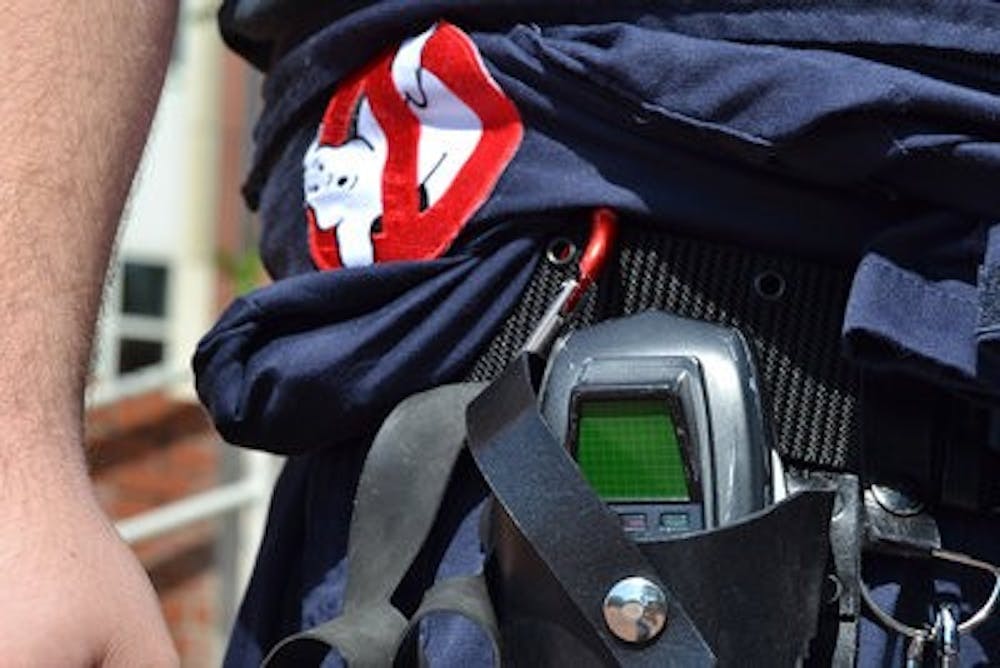Only at a Cosplayers' Association meeting can Ghostbusters and ninjas create and chat about costumes alongside Disney princesses and Pokemon.
"Cosplay is the hobby of creating and assembling costumes based on various characters and pop culture, such as anime, manga, novels and TV shows," said David Railey, secretary and sophomore in software engineering at Southern Union Community College.
The cosplays have dual purposes, serving both as means of entertainment and self-expression. The decision of choosing which character to cosplay is deeply personal, with childhood nostalgia or pop culture preferences affecting the decision.
For some, the emotional impact isn't only temporary.
"The character choice can be a confidence booster," said Harley Heaps, treasurer and senior in chemistry, who also cosplays as an original character. "I feel much more powerful than I am because she's a powerful, independent leader. I can embody that with cosplay and leave my normal shell behind."
Since the organization's founding in 2012, the reception of cosplayers in Auburn has become more positive.
"No matter where you go as a cosplayer more people are interested and curious than downright hateful," Railey said. "And for those who are, who cares?"
This past summer the cosplaying community made headlines when the issue of sexual harassment arose at San Diego Comic-Con and other conventions.
The fantasy element of costumes mixed with overzealous fans can result in inappropriate behavior.
"Cosplay does not mean that you can grope us or take upskirt shots, we do this because this is a character we like and we took the time to make the costume," said President Samantha Kelly, senior in psychology.
"It's gotten to the point where we need to speak up about it," Kelly said.
By discussing and bringing the issue to light, cosplayers have found ways to combat harassment by traveling in groups and looking out for other cosplayers.
Miranda Smith, vice president and sophomore in computer science, experienced convention harassment firsthand while cosplaying a very confident, physical character.
"They like you to be in character and a lot of people took advantage of that," Smith said. "I was lifted, grabbed, touched without permission and asked to pose inappropriately for photos."
Behavior like this threatens the safe and accepting community that cosplaying offers.
"Cosplay does not equal consent," said Sydney Jenkins, sophomore in psychology.
In addition to harassment, issues involving race, body image and gender also affect the community.
"They don't mean to do it, but people aren't as enthusiastic about my cosplays because my race doesn't match the character," said Jessica Moore, junior in software engineering and convention coordinator.
The discrimination is rooted in the belief the cosplayers should completely imitate their chosen characters. The same issue arises with gender and body type.
"I've not been shamed, but due to everything I've seen," said Emily Cooper, senior in biomedical sciences. "I feel like I shouldn't cosplay certain characters that I don't look like because I don't want to deal with the harassment that comes from cosplaying a character that I don't look like."
The hobby of crossplay, cosplaying as a member of the opposite gender, is also scrutinized.
"People are derogatory about males cosplaying female characters," Smith said. " They tend to make automatic assumptions about them and who they are."
Despite the discrimination that arises, the Auburn cosplayers face adversity with optimism and unity.
"The whole point of this club is to foster not only a community feeling, but a family feeling for people who participate in the hobby of cosplay," Railey said.
The Cosplayers' Association has created a strong family within Auburn.
"Being in the Cosplayers' Association has opened my mind a lot," Heaps said. "I'm definitely different from who I used to be, for the better."
Do you like this story? The Plainsman doesn't accept money from tuition or student fees, and we don't charge a subscription fee. But you can donate to support The Plainsman.





